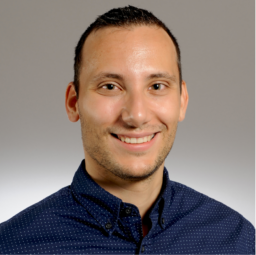Maximilian Wittmann
Maximilian Wittmann
Maximilian Wittmann is an associated researcher at the Gamification & Digital Customer Engagement research group. Mr. Wittmann’s research focuses on gamification for Artificial intelligence (AI), in particular to improve the collaboration between humans and intelligent autonomous systems. His research is at the intersection of human-machine interaction, behavioural design, psychology, and software engineering (especially AI). He investigates which design principles of digital games can improve collaboration between humans and AI. Mr. Wittmann investigates how gamification can contribute to human-centered Artificial Intelligence (AI) and how it can increase the technology acceptance of AI in our society.
Mr. Wittmann holds a M. Sc. in Mechanical Engineering and a B. Sc. in International Production Engineering and Management from Friedrich-Alexander-Universität Erlangen-Nürnberg (FAU). Over the course of his studies, he studied abroad in Shanghai (Fudan University) and in Singapore (Curtin Singapore) and completed an internship abroad at Robert Bosch GmbH in Aranjuez (Madrid). In addition, Mr. Wittmann has worked as an intern in industrial companies (e.g. at ZF Friedrichshafen AG, Robert Bosch GmbH) as well as a student researcher at several institutes at FAU. In 2019, he founded a company where he offers online courses and coaching on the topics of Industry 4.0 and object-oriented programming. He has also published a book on the fundamentals of Industry 4.0. Prior to joining this research group, Mr. Wittmann worked as a software developer and consultant at prisma informatik GmbH in Nuremberg and as a scientific researcher at the Technical University of Denmark (DTU). At DTU, he explored how digital immersive technologies (e.g. VR, AR, wearables, digital twins) can be used for the therapy of stroke patients in collaboration with exoskeleton robots. He also examined the role that these technologies play in establishing long-term behaviour change of patients.
2024
- :
Exploring the Effect of Anthropomorphic Design on Trust in Industrial Robots: Insights from a Metaverse Cobot Experiment
21st International Conference on Ubiquitous Robots, UR 2024 (New York, NY, USA, 24. June 2024 - 27. June 2024)
In: 2024 21st International Conference on Ubiquitous Robots, UR 2024 2024
DOI: 10.1109/UR61395.2024.10597479
2023
- , , :
I = Robot: An Investigation of How Perspective Switching Can Support People’s Acceptance of AI-Powered Social Robots
IEEE International Conference on Robot and Human Interactive Communication (RO-MAN) (Busan, 28. August 2023 - 31. August 2023)
In: Proceedings of the 32nd IEEE International Conference on Robot and Human Interactive Communication (RO-MAN) 2023
DOI: 10.1109/RO-MAN57019.2023.10309478 - , :
Exploring the metaverse as a catalyst for human-AI collaboration
StartPlay 2023 (Wuppertal, 28. September 2023 - 28. September 2023)
In: Manuel Löwer, Tim Katzwinkel und David Kessing (ed.): Proceedings of the 2nd Interdisciplinary Conference on Gamification and Innovation 2023
DOI: 10.25926/BUW/0-211
2022
- , , , , :
Reinforcement Learning for Engineering Design Automation
In: Advanced Engineering Informatics 52 (2022), Article No.: 101612
ISSN: 1474-0346
DOI: 10.1016/j.aei.2022.101612 - , :
What do games teach us about designing effective human-AI cooperation? - A systematic literature review and thematic synthesis on design patterns of non-player characters
GamiFIN Conference 2022 (Tampere, FI, 26. April 2022 - 29. April 2022)
In: Mila Bujić, Jonna Koivisto, Juho Hamari (ed.): Proceedings of the 6th International GamiFIN Conference 2022
Open Access: http://ceur-ws.org/Vol-3147/paper10.pdf
URL: http://ceur-ws.org/Vol-3147/paper10.pdf
2018
- , , , , , , , , , , , , :
SMARTLOCATE – INDOOR LOCALIZATION WITH BLUETOOTH BEACONS AND SMARTPHONE SENSORS
Smart Public Building 2018 (Stuttgart, 19. October 2018 - 20. October 2018)
In: Dieter Uckelmann (ed.): Smart Public Building 2018 Proceedings 2018
Open Access: http://www.hft-stuttgart.de/Forschung/i_city/Handlungsfelder/Explorative-Projekte-i-city/Dokumente/pdfgesamt/de/
URL: http://www.hft-stuttgart.de/Forschung/i_city/Handlungsfelder/Explorative-Projekte-i-city/Dokumente/pdfgesamt/de/
